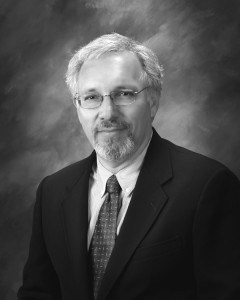A casual movie-goer until his mid-30s, Rabbi Michael Panitz, PhD, found that the invention of the VHS allowed him to enjoy films at home—and he began to study them. At the same time, he realized that films on Jewish subjects would be very useful in his work as a rabbi and religious teacher.
Panitz, who is the rabbi at Temple Israel in Norfolk, is a historian with a particular interest in Jewish historical dramas and is writing a book about the cinematic retellings of Biblical stories. “The projected title is See O Israel,” he says. “I am preparing a lecture series on eight Bible movies at Harbor’s Edge (a luxury independent-living community in Norfolk) for the coming year.”
He is also one of the presenters for the film series Saturdays at Seven at Portsmouth’s Jewish Museum and Cultural Center, where he discusses movies with Jewish themes. Panitz serves on the board of the JMCC, which he calls “an underappreciated cultural resource for our local Jewish community.”
One thing he’s noticed is the evolution of how Jewish issues—for example, “otherness,” diaspora, and assimilation—are portrayed in film. “The marginal status of the Jew and the assimilationist mindset of the era are quite apparent in the first forays into the genre, such as The Jazz Singer,” Panitz notes. “Even in the 1950s, actual portrayals of Jewish religious loyalty are sparse and abbreviated, such as in Marjorie Morningstar. We see a fuller embrace of Jewish loyalties in films from the 1970s, such as Hester Street. Even comedies [like] The Frisco Kid are warmer to Jewish loyalties than their predecessors had been.”
Cinema, of course, is not always an accurate depiction of the world, but, for better or worse, movies play a huge part in shaping public perception. Panitz believes that too often, they impose their “erroneous or even delusional worldviews upon the historical material.” One egregious example he cites is Kingdom of Heaven. “The Crusaders turn out to be post-modern ecumenists. The much-older Ivanhoe, for all its romanticism and Hollywood corn, gets the Jewish loyalties of Rebecca of York more fully.”
Coming up in his film talk series at the JMCC are eight Bible films, Samson and Delilah, David and Bathsheba, King David, The Ten Commandments, Moses the Lawgiver, The Prince of Egypt, Exodus: Gods and Kings, and Noah. “These films all serve as windows into the time and place of the retelling even more than the biblical stories they represent. I approach this from the realm of intellectual history, showing how, for example, The Ten Commandments (1956) speaks to the Cold War era or how King David (1985) reflects post-Vietnam questioning of political and religious authority.”
For more information, visit jewishmuseumportsmouth.org.
–Debbie Burke

